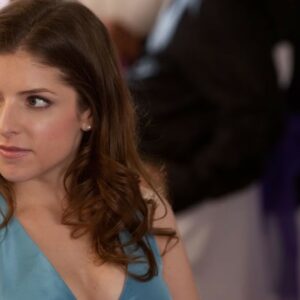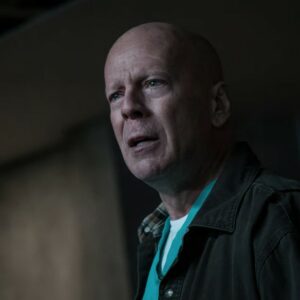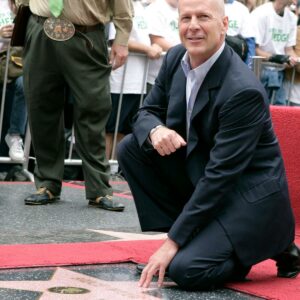In a world that’s constantly evolving, the conversation around diversity in the entertainment industry has become more crucial than ever. As society becomes more conscious of issues surrounding inclusivity, representation, and the voices that drive the narratives we consume, the film industry finds itself at a pivotal moment. Dakota Johnson, a prominent figure in Hollywood, has been vocal about the significance of diversity in film and television. As an actress who has worked on a variety of projects across different genres, Johnson recognizes the power of storytelling and the importance of ensuring that stories are told authentically and inclusively.
The State of Diversity in Hollywood
Over the years, Hollywood has witnessed significant progress in terms of diversity and representation. The industry has seen a noticeable increase in the number of films and television shows featuring casts that reflect the rich diversity of the world. However, while there are certainly more diverse faces on screen today than in the past, the conversation around diversity in Hollywood remains far from complete.
Dakota Johnson has been at the forefront of this conversation, pushing for a more inclusive industry that not only showcases diversity on screen but also promotes it behind the scenes. In recent interviews, Johnson emphasized the importance of authentic representation in storytelling. “Diversity isn’t just about having a mix of people on-screen,” she said. “It’s about ensuring that the stories being told are authentic and reflective of the world we live in.”
For Johnson, diversity extends beyond race and gender; it includes representation of different cultures, sexual orientations, socioeconomic backgrounds, and life experiences. She believes that the film industry has a responsibility to tell stories that resonate with a wide range of audiences, and that requires the inclusion of diverse voices at every level of the creative process.
The Power of Storytelling
As an actress, Dakota Johnson has been involved in a variety of projects that highlight the transformative power of storytelling. From indie films to blockbuster franchises, she has seen firsthand how stories can shape the way people think and feel. For Johnson, storytelling is a tool that can be used to challenge perceptions, break down barriers, and foster empathy.
“Film has the power to change minds and challenge perspectives,” Johnson said in an interview. “When we see stories about people who are different from us, we begin to understand them better. And that’s how real change happens.”
Johnson’s words speak to the heart of the matter: storytelling is not just entertainment; it’s a means of shaping culture. When people see themselves represented on screen in a way that is authentic and relatable, it validates their experiences and allows them to feel seen and heard. Conversely, when certain groups are consistently underrepresented or misrepresented, it can perpetuate harmful stereotypes and contribute to a culture of exclusion.
The Importance of Authenticity in Representation
One of the key points that Dakota Johnson has stressed in her discussions about diversity is the importance of authenticity. In her view, it’s not enough to simply include diverse characters in a film or television show; those characters need to be portrayed in a way that is true to their lived experiences. This means that filmmakers must prioritize authenticity in their storytelling, ensuring that the narratives they create are informed by the perspectives of those who have lived them.
“When stories are told from the perspectives of those who have lived them, they resonate more deeply with audiences,” Johnson explained. “It’s not just about checking a box. It’s about creating meaningful, authentic representation that feels real to the people who are watching.”
Authenticity in representation is crucial because it allows for a deeper, more nuanced portrayal of diverse characters. When a story is told from the perspective of someone who has personally experienced the challenges and triumphs of that narrative, it is more likely to ring true with audiences. This level of authenticity can only be achieved when diverse voices are involved in the creative process, from the writing room to the director’s chair.
Behind the Camera: The Need for Diverse Filmmakers
While there has been progress in terms of on-screen diversity, Dakota Johnson has also been vocal about the need for more diversity behind the camera. In her view, true progress in the entertainment industry can only be achieved when diverse voices are not only present on screen but are also involved in shaping the stories being told.
“We’ve seen more diverse casts, which is amazing,” Johnson noted. “But we also need to look at who’s behind the camera. Are the writers, directors, and producers diverse? Are they bringing their unique perspectives to the table?”
This is a critical point that often gets overlooked in discussions about diversity in Hollywood. While it’s important to have diverse representation on screen, the people who are responsible for creating and shaping those stories also need to reflect the diversity of the world. When diverse voices are included in the decision-making process, it leads to more authentic and well-rounded portrayals of different experiences.
Johnson’s call for more diversity behind the camera aligns with a broader push in the industry to create more opportunities for underrepresented groups in all aspects of filmmaking. This includes not only hiring more diverse writers, directors, and producers but also providing mentorship and support to help them succeed in an industry that has historically been dominated by a narrow range of voices.
Progress and Challenges in Hollywood
It’s undeniable that Hollywood has made strides in recent years when it comes to diversity and representation. Films like Black Panther, Crazy Rich Asians, and Moonlight have shown that there is a strong appetite for stories that center around diverse characters and experiences. These films have not only been critically acclaimed but have also achieved commercial success, proving that diversity is not just a moral imperative but also a smart business move.
However, as Dakota Johnson has pointed out, there is still much work to be done. While we are seeing more diverse stories being told, the industry still has a long way to go in terms of achieving true inclusivity. This is particularly evident when we look at the disparities in who gets to tell those stories. Women, people of color, LGBTQ+ individuals, and other marginalized groups are still underrepresented in key creative roles such as directing, writing, and producing.
One of the challenges that Johnson has highlighted is the tendency in Hollywood to treat diversity as a trend rather than a long-term commitment. She has expressed concerns that some studios may see diversity as a box to be checked rather than a fundamental value that should be integrated into every aspect of the filmmaking process.
“Diversity isn’t just a trend; it’s something that should be embedded in the DNA of the industry,” Johnson said. “It’s about creating a culture where everyone feels valued and where all voices are heard.”
Dakota Johnson’s Commitment to Diversity
Dakota Johnson’s commitment to diversity is evident not only in her words but also in her actions. She has consistently sought out roles that reflect a wide range of experiences and has used her platform to support diverse voices in the industry. For her, it’s not just about being part of the conversation—it’s about actively contributing to change.
In recent years, Johnson has been involved in projects that highlight diverse perspectives and challenge conventional narratives. For example, in the film The High Note, Johnson played a character who was navigating the complexities of race and privilege in the music industry. The film was praised for its nuanced portrayal of these issues, and Johnson’s performance was widely acclaimed.
Johnson has also been a vocal advocate for gender equality in Hollywood. She has spoken out about the need for more women in leadership roles and has called for greater accountability when it comes to addressing issues like pay disparity and sexual harassment in the industry.
“I think it’s important that we continue to push for change,” Johnson said. “We need to create an industry where everyone has an equal opportunity to succeed, regardless of their gender, race, or background.”
The Role of Hollywood in Shaping Culture
As Dakota Johnson has pointed out, the film industry has a unique ability to shape culture and influence societal norms. The stories that we see on screen can have a profound impact on the way we perceive the world and the people in it. This is why it’s so important that Hollywood continues to push for greater diversity and inclusivity in its storytelling.
“When we tell diverse stories, we make the world a little bit bigger for everyone,” Johnson said. “We give people the opportunity to see themselves reflected on screen and to feel like their experiences matter.”
Johnson’s words underscore the idea that diversity in film is not just about representation; it’s about creating a more inclusive and empathetic society. By telling stories that reflect the full spectrum of human experience, Hollywood has the power to challenge stereotypes, break down barriers, and foster a greater understanding of one another.
The Future of Diversity in Hollywood
Looking ahead, Dakota Johnson remains optimistic about the future of diversity in Hollywood. She believes that the industry is moving in the right direction, but she also recognizes that there is still a lot of work to be done. For Johnson, the key to achieving true diversity and inclusivity lies in continuing to push for change and holding the industry accountable for its progress.
“I think we’re heading in the right direction, but we can’t become complacent,” Johnson said. “We need to keep pushing for change and make sure that diversity remains a priority in every aspect of the industry.”
Johnson’s vision for the future of Hollywood is one where diversity is not just a buzzword but a fundamental value that is reflected in every aspect of the filmmaking process. She envisions a world where all voices are heard, where stories are told authentically, and where everyone has an equal opportunity to succeed.
Conclusion: Dakota Johnson’s Vision for an Inclusive Future in Film
Dakota Johnson’s stance on diversity in film highlights the importance of authentic representation and the need for continued progress in the entertainment industry. Her commitment to diversity, both on and off-screen, is helping to pave the way for a more inclusive and equitable future in film. By advocating for more diverse voices and challenging the industry to do better, Johnson is playing a crucial role in shaping the future of Hollywood.
As Johnson has made clear, the conversation around diversity in film is far from over. While progress has been made, there is still a long way to go in terms of achieving true inclusivity. But with voices like hers leading the charge, there is hope that Hollywood will continue to evolve and become a more inclusive and representative industry.
In the end, Johnson’s message is one of hope and determination. She believes that by telling diverse stories and amplifying marginalized voices, the film industry can help create a more just and equitable society. “When we tell diverse stories, we make the world a little bit bigger for everyone,” she said. And in doing so, we help to build a future where everyone’s voice is heard, and everyone’s story is valued.





